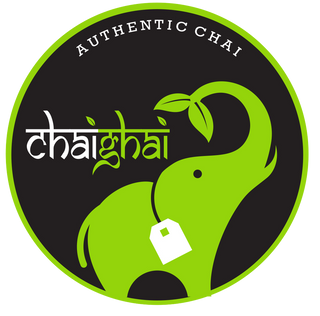“Reincarnation is essential to enable the soul to evolve to its divine right”
-R.E. Goudey
To truly connect to the universe, one must be open to the infinite possibilities it creates for us. Reincarnation takes its ethos as the transmigration of the soul into a new body once biological life has ceased. The term, which first came to prominence in Latin, means the soul entering the flesh again. This concept of rebirth has been a major foundational aspect of many Indian religions such as Hinduism, Buddhism, Sikhism and Jainism since their inception. Punarjanman, meaning born again in Sanskrit, holds that by obtaining moksha which means release and thus the enlightenment to higher consciousness, beings can ascend beyond the physical. The idea of moksha guided by karma is vital to the concept of samsara, Sanskrit for wandering the world and thus denotes the circle of life. This cycle of death and rebirth can only be ascended from when moksha is attained and the atman is reunited with Brahman. Vegetarianism and veganism are important aspects in karma and how they relate to reincarnation. By treating animals well and not partaking of their flesh people increase their karma and path to reincarnation. This is one of the reasons cows are thought to be sacred in Hinduism and beef is not consumed by many who practice it. Reincarnation has a long history in Indian traditions with its roots stemming from the Upanishads, part of the Vedic texts. These rituals and beliefs saturate many aspects of Indian culture and religious philosophy and are still upheld as important practices today.

What Has Reincarnation Meant to Indians Throughout History

The idea of reincarnation has been an important concept in ancient Indian philosophy for multiple millennia. It is first referred to in the Upanishads found within the Vedas that make up the foundation of Hindu philosophy. The term atman, self in Sanskrit is at the center of concepts proposed through the Upanishads. It highlights the goal of attaining pure consciousness through self-knowledge that will lead to moksha. Brahman, stemming from the Hindu God Brahma, the Creator, refers to the ultimate reality and how everything in the universe is connected. The notion of obtaining this knowledge and finally becoming one with Brahman is the highest form of reincarnation. When one reaches that plane they will be free from samsara and the karmic cycle. This reunification is at the center of why the cyclical nature of reincarnation holds such importance to Indian culture.
How Reincarnation Relates to Indian Culture

Traditional Indian beliefs hold the concept of reincarnation in high esteem. Since the earth is billions of years old and humans have existed for millions of years evolution has occurred slowly. Through this process each soul has had a chance to experience many different types of lives beginning as a mineral and working their way up the spectrum of reincarnation, through plants and animals to humans. When higher karma is achieved in life the subsequent form of reincarnation will also be elevated. Gandhi brought the ideas of karma to the forefront of Indian society in the first half of the 20th century by living a pious life of asceticism. He was a staunch believer in the Vedas as sources of wisdom and pure knowledge. Stemming from this knowledge the cycle of samsara affects how many Indians view death. Instead of looking at it as an ending they view it as a transition from one life to the next. This is why concepts such as vegetarianism, veganism, karma and the final ascension of moksha are so pervasive in Indian culture. We further discussed how important moksha is to India traditions in one of our previous Chai Guides.
3 Things You Didn't Know About The Kama Sutra – Chai Ghai
“Each night, when I go to sleep, I die. And the next morning, when I wake up, I am reborn.”
-Gandhi

The Holy Cow: Why the Cow is an Important Symbol in Reincarnation

Cows in Indian culture hold a special significance for their altruistic characteristics, which instead of being exploited are celebrated and worshipped. Cows are further revered as representations of Mother Earth by nourishing all creatures. Krishna, the Hindu God of protection, among others, was himself a cow herder who extolled the importance of their protection. Gopala, another name for which Krishna is known, literally means cow protector in Sanskrit and shows his close connection with them. Thus if cows are treated well ones karma will improve making their achievement of a higher form of reincarnation more likely. It is with this idea that the concepts of veganism took shape. The word vegan was first used in the vernacular by Donald Watson in 1944 and thus propelled the vegan movement into the juggernaut it has become today. He along with a group of 5 others who all held similar plant based view points on the importance of a vegetarian diet and lifestyle wanted to take their ideas one step further. By deciding to forego the consumption of all animal products they sought to put an end to the exploitation of animals. These concepts were more clearly defined in a 1951 publication by Vice-President Leslie Cross and they have moved more into animal rights activism in the time since. The core ideas of veganism were particularly influenced by ancient Indian and Greek culture. It was Pythagoras that first brought the use of the word vegetarian to the public around the same time of the late Vedic publications. He also travelled widely, including to India to further broaden his knowledge. The ideas of karma that pervaded included those of ahimsa, Sanskrit for non-injury, the idea that doing harm to others is akin with harming yourself. This concept, of which Gandhi was a heavy proponent, is particularly pervasive in the vegan movement. The idea of nonviolence extends especially to the sanctity of cows. Their horns are thought to represent the gods, their legs the 4 Vedas and their udder wealth, desire, righteousness and salvation, the objectives of life. These symbols help to make cows sacred in Indian culture.
Reincarnation Redefines Mortality: Finite vs. Infinite

The notion of the body as a temple is a common phrase among religious practice. In the Vedic texts the body is made up of 5 elements: earth, air, fire, water and ether. An individual can maintain a healthy body and balance among these elements through practices such as yoga, meditation, spirituality and diet such as drinking chai. While the body houses the soul for a finite amount of time keeping it in optimal condition can aid the soul’s journey and eventual reincarnation. The finite nature of the body gives way to the infinite possibilities of the soul. Plato spoke of the immortality of the soul as the source of life and conscious thought. He also considered the soul, that which creates life within the body and mind, along with our morality. He thought that when we practice good karma it is our soul that is virtuous, not our body. This idea of the soul as a separate entity from the body is an important concept in the Vedas as it states that humans are spiritual in nature because of their souls. The concept of atman and its ability to rise to achieve Brahman gives the soul the goal of gaining enlightenment during its eternal journey. These ideas are at the core of how the soul lives on after the body expires and why they are so pervasive and important to study in the quest for enlightenment.
"I died as a mineral and became a plant, I died as a plant and rose to animal, I died as animal and I was man. Why should I fear? When was I less by dying?”
-Rumi

The ideas surrounding reincarnation have permeated Indian society for thousands of years. They directly relate to karma and how people treat one another, as well as every other living being. They have their roots in Vedic literature and have persevered for thousands of years because they get to the heart of what life and existence really mean. Reaching Brahman achieved through moksha is among the most important quests to embark upon in Hinduism and helps to influence the decisions made by many Indians. The laws of karma that have been founded on these ideas are widespread, with children being taught at an early age, that what goes around comes around. The notion of cows as sacred along with the proper treatment of animals through practices like vegetarianism and veganism further helps to increase the karmic energy that goes out into the universe.




